Café Touba is a unique and flavorful coffee from Senegal.
Created by Sheikh Amadou Bamba in the early 1900s, this spiced coffee holds deep cultural and historical significance.
Originally consumed during religious ceremonies, it has now become a staple in everyday Senegalese life.
Let’s look at how to make this special coffee and learn about its rich history and cultural importance.

What is Café Touba?
Café Touba is a special type of coffee from Senegal, distinct for its unique blend of flavors.
It is traditionally made with robusta coffee beans and Selim pepper, also known as Guinea pepper.
This combination gives the coffee its signature spicy and slightly bitter taste.
Common flavor notes include balsamic vinegar, black pepper, and cardamom.
The name “Café Touba” is derived from the city of Touba, the second-most populous city in Senegal.
Touba is not just a place but a significant cultural and religious center.
The coffee is named after this city to honor its origins and cultural importance.
Sheikh Amadou Bamba, the founder of the Mouride brotherhood, introduced Café Touba in 1902.
He created this coffee as part of his daily rituals and used it to stay awake during long hours of prayer and meditation.
Over time, the drink spread beyond religious use and became popular among the general population.
Today, Café Touba is enjoyed by people from all walks of life and is an integral part of Senegalese culture.
Ingredients Needed
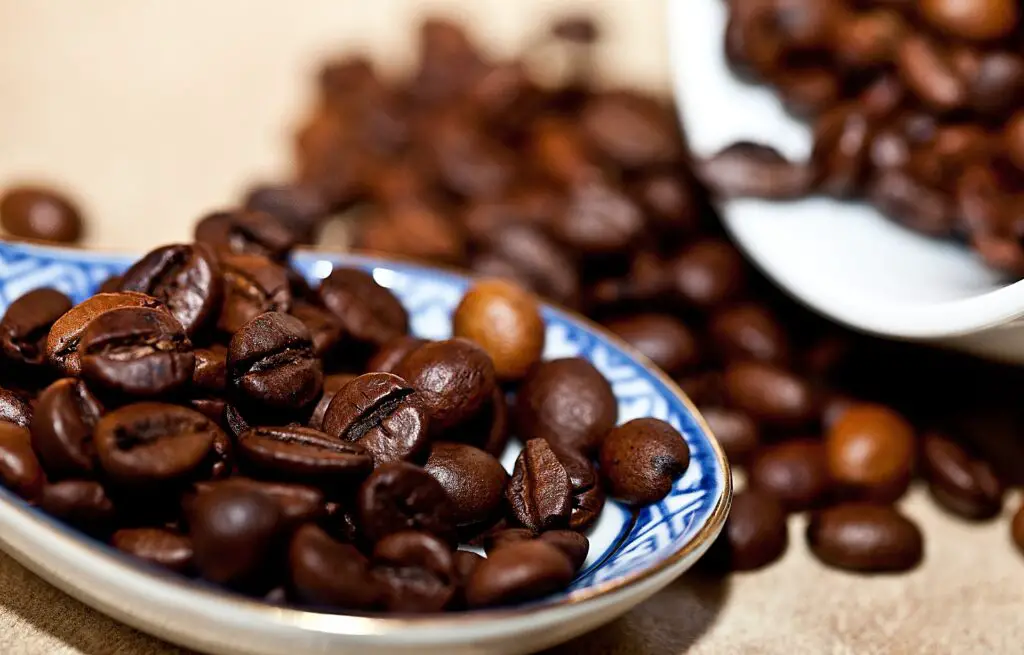
To make authentic Café Touba, you’ll need a few key ingredients that give the coffee its distinctive flavor.
Traditional Ingredients
- Robusta Coffee Beans: These beans are commonly used in Café Touba for their strong and bold flavor. Robusta beans have a higher caffeine content and a slightly bitter taste, which pairs well with the spices.
- Selim Pepper (Grains of Selim): Also known as Guinea pepper, Selim pepper is essential for the unique taste of Café Touba. It adds a spicy and slightly bitter flavor, with notes of black pepper and cardamom.
- Cloves (Optional): Some variations of Café Touba include cloves. Cloves add a warm, sweet, and aromatic flavor that complements the spiciness of Selim pepper.
Alternative Ingredients and Substitutes
- Arabica Beans: If you prefer a milder and smoother coffee, you can use Arabica beans instead of Robusta. Arabica beans have a lower caffeine content and a more delicate flavor.
- Pepper-Clove Syrup: If you cannot find Selim pepper, you can make a pepper-clove syrup as a substitute. This syrup combines whole peppercorns and cloves with water, brown sugar, and vanilla extract. The syrup can be added to your coffee to mimic the traditional flavor of Café Touba.
Equipment Needed
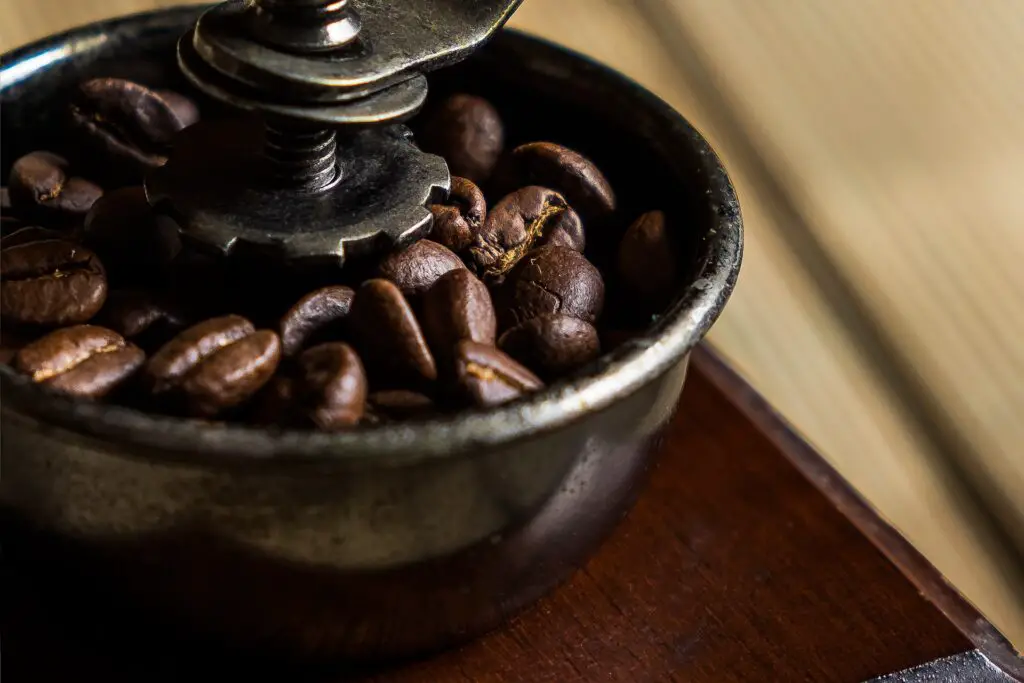
Making Café Touba requires a few essential tools to ensure you capture its authentic flavor and aroma.
- Coffee Grinder: A good coffee grinder is necessary to grind the robusta beans and Selim pepper to the right consistency. Freshly ground coffee and spices will provide the best flavor.
- Saucepan or Skillet: You will need a saucepan or skillet to toast the Selim pepper and cloves. Toasting the spices releases their oils and enhances their flavors.
- Pour-over Setup (Cloth Filter or Hario V60): Traditional Café Touba is often made using a pour-over method. You can use a cloth filter or a Hario V60 to achieve this. The slow brewing process allows the flavors to fully develop.
- AeroPress or Similar Coffee Maker: For a modern twist, you can use an AeroPress. This coffee maker is versatile and can be used to brew Café Touba with a rich and concentrated flavor. It also allows for fine control over the brewing process, which can enhance the coffee’s unique taste.
Step-by-Step Instructions
1. Preparing the Ingredients
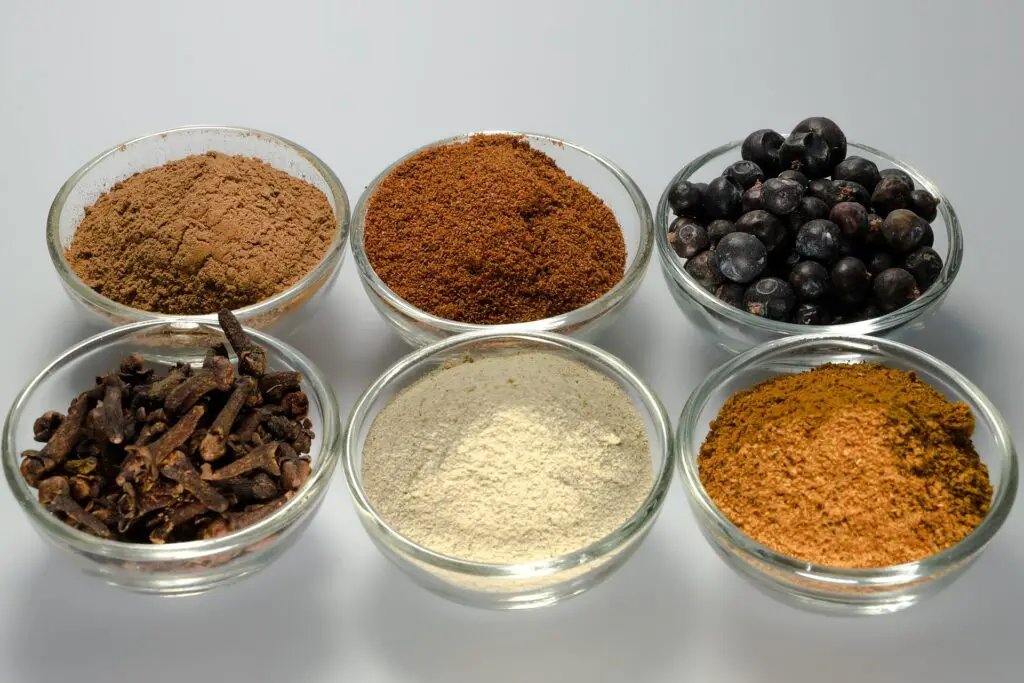
Toasting Selim Pepper and Cloves
- Heat a skillet or saucepan over medium heat.
- Add the Selim pepper (and cloves, if using) to the skillet.
- Toast the spices for about 2-3 minutes, stirring occasionally, until they release their aroma and turn slightly darker. Be careful not to burn them.
- Remove the skillet from heat and let the spices cool.
Grinding the Spices and Coffee Beans
- Once the spices are cool, use a coffee grinder to grind the Selim pepper and cloves to a fine consistency.
- Measure out the desired amount of robusta coffee beans and grind them to a medium-coarse grind, similar to the consistency of sea salt.
- Mix the ground coffee with the ground spices thoroughly.
2. Brewing Methods

Traditional Pour-over Method
- Place a cloth filter or a Hario V60 over a coffee mug or carafe.
- Add the coffee and spice mixture to the filter.
- Boil water and let it cool slightly for about 30 seconds.
- Pour a small amount of hot water over the coffee grounds to let them bloom for 30 seconds.
- Slowly pour the remaining hot water over the grounds in a circular motion, ensuring even saturation.
- Allow the coffee to drip through the filter completely.
AeroPress Method
- Assemble the AeroPress with a metal or paper filter.
- Add the coffee and spice mixture to the AeroPress chamber.
- Pour hot water into the chamber up to the fill line.
- Stir the mixture for about 10 seconds.
- Attach the plunger and gently press down until all the liquid is extracted.
V60 Pour-over Variation
- Set up the Hario V60 with a paper filter over a mug or carafe.
- Rinse the paper filter with hot water to remove any paper taste and preheat the V60.
- Add the coffee and spice mixture to the V60.
- Pour a small amount of hot water over the coffee grounds to let them bloom for 30 seconds.
- Slowly pour the remaining hot water over the grounds in a spiral motion.
- Allow the coffee to drip through completely.
3. Serving Suggestions
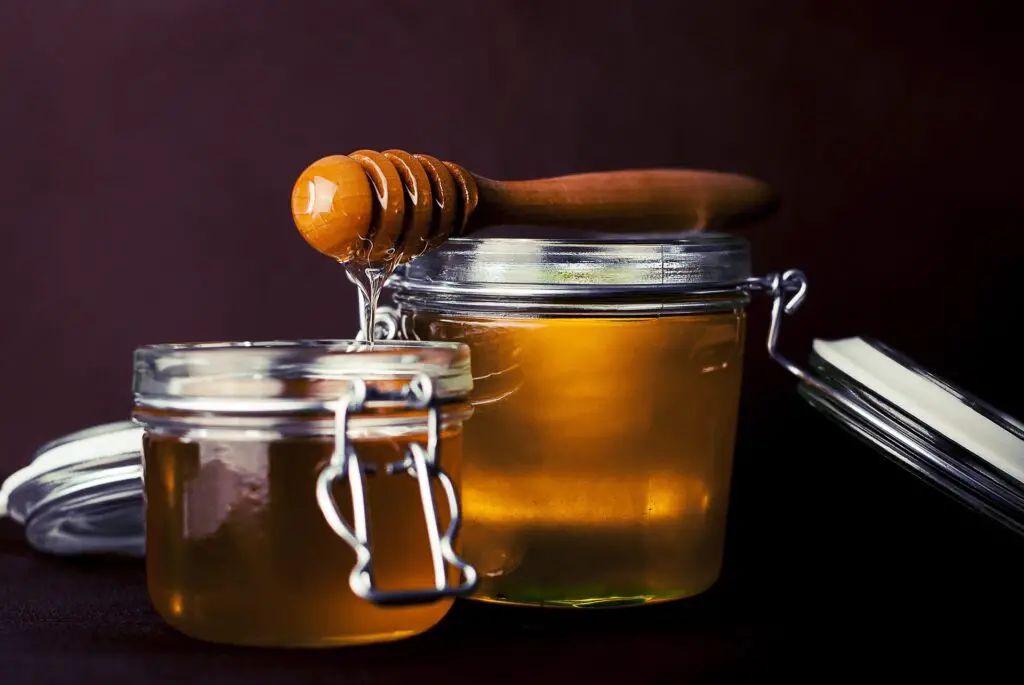
Adding Sugar or Honey
- Café Touba is traditionally enjoyed with a generous amount of sugar or honey.
- Stir in your preferred sweetener to taste.
Frothing and Pouring Techniques
- For a creamier texture, you can froth milk and pour it over the coffee.
- Use a frother or heat milk in a saucepan, then whisk until frothy.
Traditional Presentation in Small Cups
- Serve Café Touba in small cups to capture the traditional experience.
- Enjoy the coffee hot, savoring its unique blend of spices and robust flavor.
Tips for the Perfect Café Touba
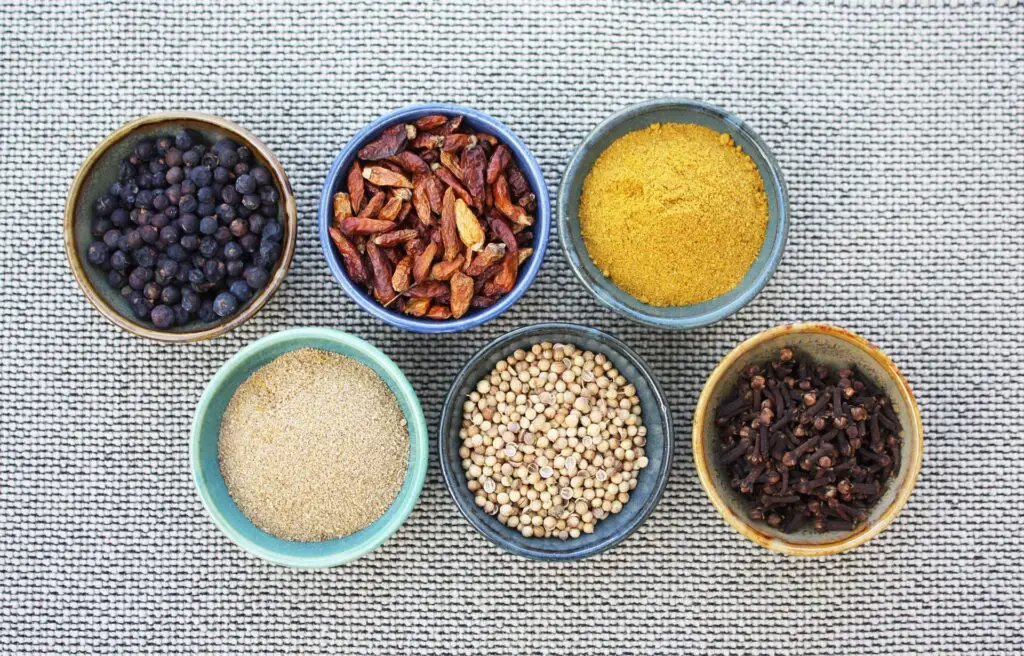
Adjusting Spice Levels to Taste
- Start Small: If you’re new to Café Touba, begin with a smaller amount of Selim pepper and cloves. You can always add more later if you prefer a stronger flavor.
- Experiment: Try different proportions of spices until you find your ideal balance. Some might prefer a more peppery taste, while others might enjoy a subtle hint of spice.
- Taste as You Go: Brew small batches and taste the coffee before making a full pot. This allows you to adjust the spice levels without wasting ingredients.
Balancing Sweetness and Spiciness
- Sweeteners: Café Touba is traditionally sweetened with sugar or honey. Start with a teaspoon per cup and adjust to your preference.
- Complementary Flavors: The sweetness should balance the spiciness without overpowering it. Add sweetener gradually and taste frequently to find the right balance.
- Alternatives: Consider using natural sweeteners like agave syrup or coconut sugar for a different flavor profile.
Storing and Reheating Tips
- Storing: Store leftover Café Touba in an airtight container in the refrigerator. It can last for up to three days.
- Reheating: Reheat the coffee gently on the stove over low heat. Avoid using a microwave as it can alter the flavor.
- Fresh Spices: If you plan to store the coffee for more than a day, consider adding fresh spices when reheating to revive the aroma and flavor.
Health Benefits of Café Touba

Antiplasmodial and Analgesic Properties
Café Touba is known for its potential health benefits, particularly its antiplasmodial and analgesic properties.
Selim pepper, a key ingredient, contains compounds that can help fight against malaria-causing parasites.
Additionally, both the coffee and spices in Café Touba can provide pain relief, making it a natural analgesic.
These benefits have been valued in traditional medicine practices in Senegal.
Anti-inflammatory and Antidiabetic Effects
Another significant health benefit of Café Touba is its anti-inflammatory and antidiabetic effects.
The spices used in the coffee, particularly Selim pepper and cloves, have anti-inflammatory properties that can help reduce inflammation in the body.
Furthermore, these spices can help regulate blood sugar levels, making Café Touba a potentially beneficial drink for people managing diabetes.
Antimicrobial Benefits
Café Touba also offers antimicrobial benefits due to the bioactive compounds found in its spices.
Selim pepper and cloves have natural antimicrobial properties that can help fight off bacteria and other pathogens.
Cultural Significance

Café Touba in Daily Senegalese Life
Café Touba is more than just a drink in Senegal; it’s a daily ritual for many.
The strong, spiced coffee is a staple in homes and on street corners.
People enjoy it as a morning pick-me-up or a midday refreshment.
Its distinctive aroma and flavor are deeply embedded in the cultural fabric of Senegalese society.
Role in Religious Ceremonies and Festivals
Café Touba holds a special place in religious ceremonies and festivals.
It was first introduced by Sheikh Amadou Bamba, a revered religious leader.
Initially, it was consumed during religious gatherings and night prayers to help worshippers stay awake and focused.
Today, it is still an integral part of the Grand Magal festival in Touba, which celebrates Sheikh Amadou Bamba’s return from exile.
Pilgrims flock to Touba, and Café Touba is served in abundance, symbolizing both hospitality and spiritual devotion.
Economic Impact and Street Vendor Culture
The economic impact of Café Touba is significant.
Street vendors, known as tanganas, play a vital role in its distribution.
These vendors set up carts in busy areas, brewing large batches of Café Touba to sell to passersby.
This practice not only provides a source of income for many families but also contributes to the local economy.
The popularity of Café Touba has even led to a decline in the sales of instant coffee brands like Nescafé in Senegal.
The drink’s widespread appeal has also sparked a growing market for Café Touba in capsule and single-serve forms, extending its reach beyond Senegal to other West African countries and even to markets in France and Canada.
Modern Twists Using Specialty Coffee Beans
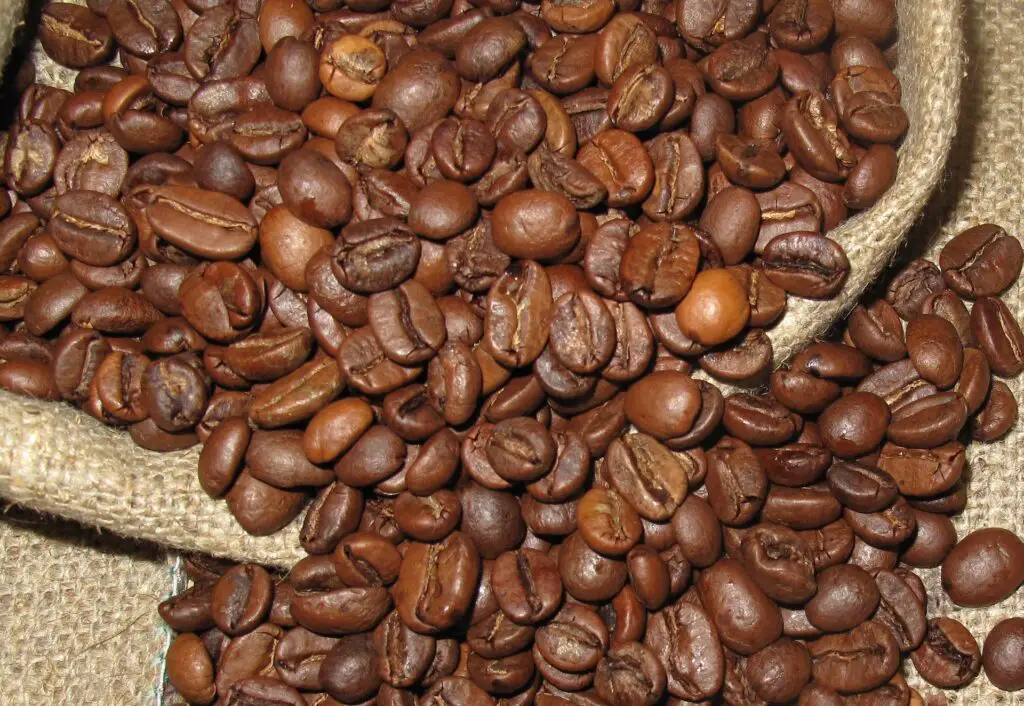
While the traditional Café Touba recipe uses robusta beans, modern adaptations often explore specialty coffee beans.
Some variations include using Arabica beans, which offer a smoother and less bitter taste.
Blending Arabica with the traditional spices can create a unique twist on the classic recipe.
Additionally, some coffee aficionados experiment with adding other spices like cinnamon or nutmeg, providing a new flavor profile while maintaining the essence of Café Touba.
Conclusion
Café Touba is a unique and flavorful coffee deeply rooted in Senegalese culture.
From its origins with Sheikh Amadou Bamba to its daily enjoyment and health benefits, Café Touba offers a rich experience.
Its variations and modern adaptations make it accessible for everyone.
Why not try making Café Touba at home? Experiment with the traditional recipe or add your twist.
We’d love to hear about your experiences and any variations you create.
Share your stories and tips in the comments!


